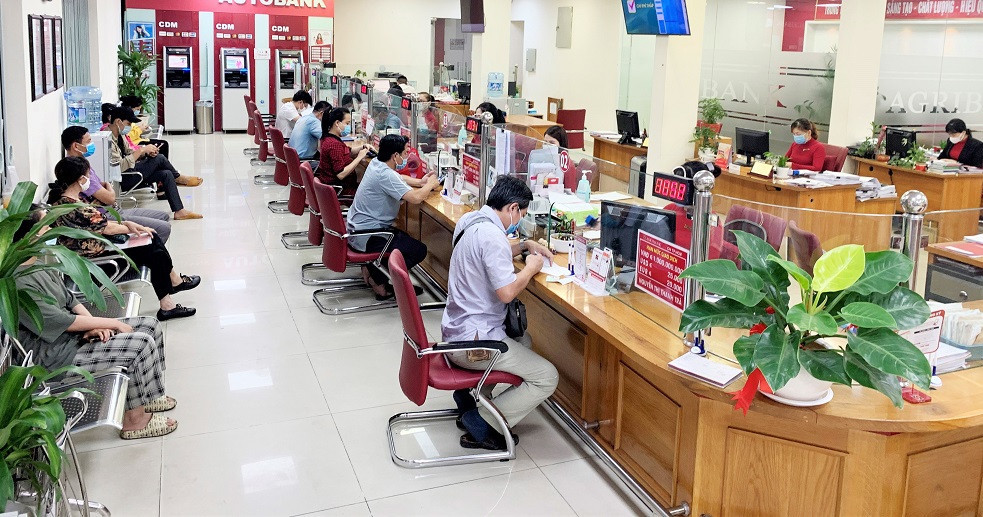
On February 8, State Bank of Vietnam (SBV) organized an online conference on real estate credit. The conference was presided over by SBV Governor Nguyen Thi Hong. Representatives of the Ministry of Construction and 20 large real estate firms attended the event.
Opening the conference, SBV Deputy Governor Dao Minh Tu affirmed that no document or statement from SBV says that the central bank has tightened real state credit. The bank only emphasizes controlling and preventing speculation and real estate bubbles.
“We have been consistently pursuing this principle. Real estate is also a business field and it needs to be treated the same as other fields in the economy,” Tu said.
Tu was replying to real estate developers’ complaints that SBV has instructed commercial banks to tighten lending to the real estate sector.
However, outstanding real estate loans had reached VND2.58 quadrillion as of the end of 2022, an increase of 24.27 percent over 2021.
Real estate is one of the sectors seeing high growth rates, accounting for 21 percent of total outstanding loans to the economy, the highest level in the last five years.
Citing the figures, Tu affirmed that banks continue to provide loans to the real estate sector.
“The lending growth rate to the real estate sector is the highest among business fields and the loans to the sector account for the highest proportion. However, enterprises still complain they cannot access bank loans,” Tu said.
According to Ha Thu Giang, before the Covid-19 pandemic broke out, the real estate lending growth rate was higher than 20 percent. The figures were 12 and 15 percent in 2020 and 2021, respectively.
The total outstanding loans to the sector had climbed to VND2.58 quadrillion, and the bad debt ratio is 1.81 percent. Ninety percent of real estate loans are long-term (10-25 years), while 80 percent of deposits at banks are short-term.
Realtors' reactions
At the conference, leading realtors, including Vingroup, Sungroup, Hung Thinh and the HCM City Real Estate Association (HOREA), made more than 10 proposals, mostly related to credit.
“We don’t ask for interest rate reductions. We just want to access new loans,” said HOREA chair Le Hoang Chau.
He proposed that the central bank consider a VND30 trillion credit package. The package would help solve many problems, and allow 46,000 people to buy homes.
He said 2023 would be the decisive year for real estate businesses and liquidity is the matter of biggest concern. Many businesses have reduced salaries by 50 percent and laid off 70-80 percent of workers.
Hung Thinh Land’s CEO Le Trong Khuong asked the central bank to "loosen credit room".
“It is necessary to have more credit room, so that enterprises have capital for investment and development. In current conditions, bond holders are worried if enterprises can survive and sell products,” Khuong said.
“We have plans to develop social housing, but we are in a deadlock developing the market,” he added.
Regarding interest rates, Pham Thieu Hoa, president of Vinhomes, suggested that banks not list real estate among the business fields with a high risk level if real estate projects have legal status.
Real estate is considered a risky business field in bankers’ eyes (the risk ratio is 200 percent). Banks also require more collateral for loans to real estate companies than other sectors.
Meanwhile, a representative of Sun Group proposed amending Decree 65, including the requirements for professional investors.
Mentioning the problems of the legal framework, he said the real estate sector is covered by more than 100 laws, decrees and circulars. Ministries keep updating and adjusting regulations, but the framework still cannot keep pace with market development.
To date, there is still no legal framework for condotels, a new real estate product.
Bankers’ replies
Vietcombank’s CEO Nguyen Thanh Tung said the bank’s outstanding loans to the real estate sector had amounted to 20 percent of all credit and real estate credit had grown by 17 percent. This shows that Vietcombank still provides loans to the real estate sector, with no limitation.
The loans to individual borrowers account for 90 percent of total real estate credit, while the remaining 10 percent are for real estate firms, including Industrial Zone developers.
In 2023, Vietcombank will pay attention to resort real estate as domestic and international travel is recovering, and to office and shopping center development.
Regarding funding of housing development projects, there are two groups of borrowers. Prestigious realtors enjoy reasonable interest rates. The bank will prioritize disbursement for individuals who purchase homes, while remaining cautious about the high-end market segment.
Regarding the proposal on restructuring loans for real estate firms, Nguyen Hoang Dung from VietinBank said other business fields and associations should also require debt restructuring. If so, the principle of ensuring fairness among business fields would be maintained.
Tuan Nguyen